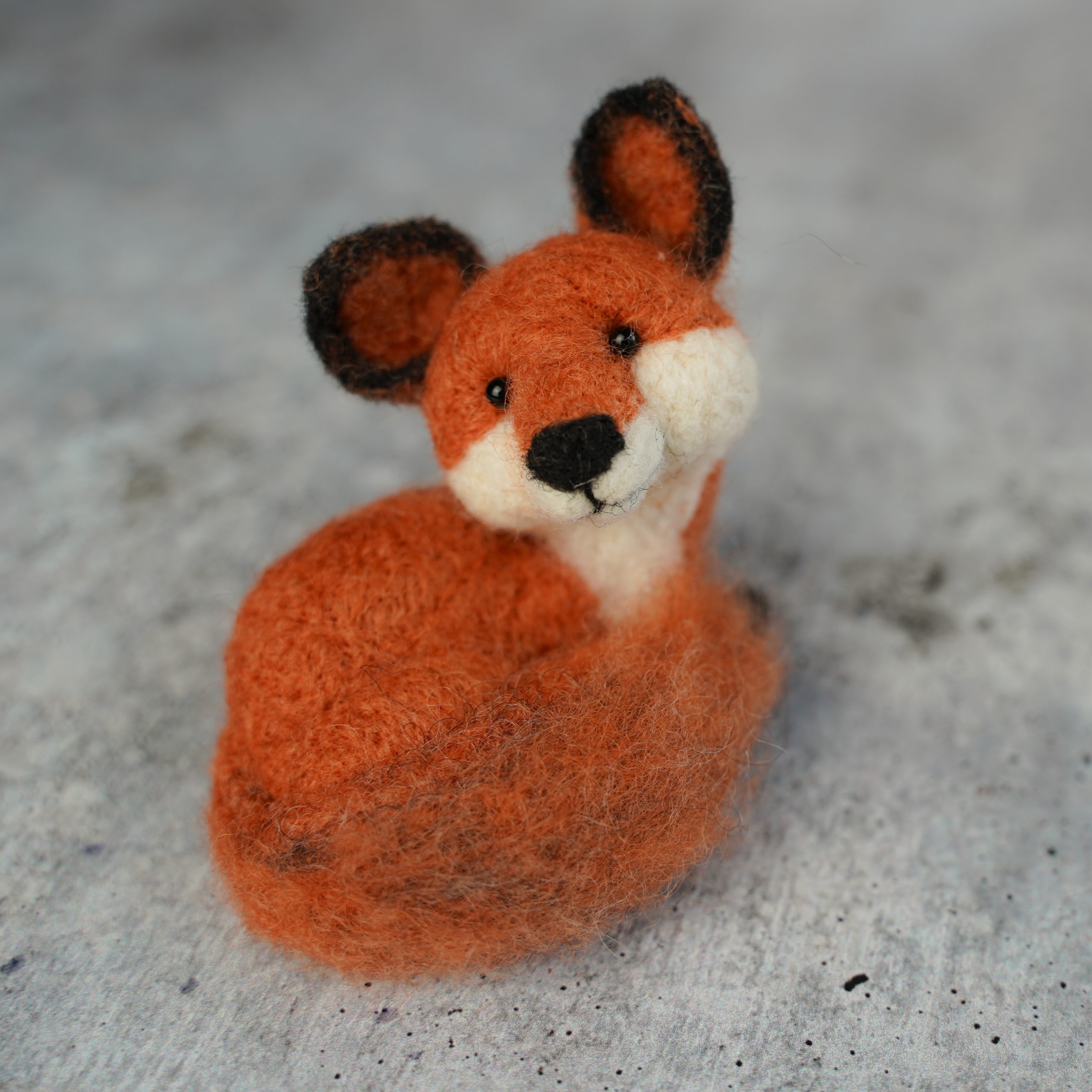
Are you confused by terms like wool tops, carded batts, and roving while shopping for needle felting supplies? Navigating the jargon of needle felting can be daunting for beginners, but don’t worry! Understanding these terms is the first step to mastering this fun and creative craft.
Needle felting is one of the most accessible art forms, perfect for all ages and skill levels. Whether you’re creating magical creatures, home décor, or whimsical gifts, the right materials can make all the difference.
In this comprehensive needle felting glossary, I’ll explain the key terms you need to know and share tips for choosing the best supplies. Bookmark this guide for your next shopping trip to ensure you’re prepared to create your next masterpiece!
Needle Felting Glossary: Must-Know Terms
Armature
An armature is the framework or skeleton that provides structure to your needle-felted sculptures. Usually made from wire or pipe cleaners, it helps stabilize designs like animals or figures. While some artists use full wire armatures, I only use them in areas like legs when necessary to maintain flexibility and ease of felting.
Carded Batts
These thick, fluffy sheets of wool are washed and carded, with fibers arranged in multiple directions. Carded batts are versatile and work exceptionally well for shaping and building the base of needle-felted creations.
Carded Sliver
Sliver consists of layered strips of wool where fibers are aligned parallel, without any twist. This makes it easy to work with, especially for detail work or creating smooth surfaces.
Gauge
The gauge of a felting needle refers to its thickness:
- Higher gauge (e.g., 38 or 40): Thinner needle for fine details.
- Lower gauge (e.g., 32): Thicker needle for shaping large areas.
Micron
Micron measures the diameter of wool fibers. A lower micron count means finer, softer wool. For example, Merino wool has a lower micron count and feels soft, but some wools with higher microns might felt faster. Experiment to find the wool that works best for your projects.
Noil
Noils, or neps, are short, irregular fibers often added to wool for texture. They’re great for creating visual interest in needle-felted pieces or for adding dimension to spinning and weaving projects.
Pre-Felt
Pre-felt is partially felted wool in flat sheets, ideal for creating felted artwork or adding background layers to needle-felted pictures.
Raw Fleece
Raw fleece is wool straight off the sheep, unwashed and unprocessed. While it’s cost-effective, it requires cleaning and preparation before use. It’s perfect for crafters who enjoy the full “farm-to-felt” experience.
Roving
Roving is a loose, carded wool with fibers going in multiple directions. Its texture makes it excellent for needle felting, providing flexibility and ease of use.
Staple
Staple refers to the length of individual wool fibers, which varies by sheep breed. Longer staples are often used for spinning, while shorter staples work well for needle felting.
Wool Locks
Wool locks are clean, naturally textured (curly) sections of wool often used to add realistic hair, fur, or other details to projects. They can be dyed or left natural for added variety.
Wool Tops
Wool tops are combed so all fibers align in the same direction, making them ideal for spinning or finishing details in needle felting. They are typically sold in long lengths that are easy to separate for precise use.
Tips for Choosing the Right Needle Felting Materials
- Experiment with Wools: Not all wools felt the same! Try different types (like Romney, Merino, or Corriedale) to see which works best for your style.
- Needle Holders: It is possible to felt with just a needle but holders make felting more comfortable.
- Keep Needles Handy: Use a range of needle gauges to achieve different effects, from shaping to adding fine details.
Level Up Your Needle Felting Skills
Now that you’re familiar with the essential needle felting terms, you’re ready to take your craft to the next level. For step-by-step guidance, exclusive tutorials, and a supportive community of fellow felting enthusiasts, join the Bear Creek Needle Felting Academy!
At the Academy, you’ll gain access to:
- Expert Tutorials: Learn from detailed video lessons.
- Proper Tools & Materials: Discover the best supplies for your projects.
- Time-Saving Tips: Master tricks to streamline your felting process.
- Community Support: Connect with other needle felters for inspiration and advice.
Ready to begin your felting journey? Click here to join the Academy today!
FAQs About Needle Felting Materials
1. What is the best wool for beginners?
Start with a medium-coarse wool like Romney or Corriedale, as they are easier to felt and more forgiving for new crafters.
2. Do I need an armature for every project?
No! Armatures are great for larger or more intricate sculptures but aren’t necessary for simpler designs.
3. What needle gauge should I use?
For beginners, a 36-star needle is a versatile choice, especially when using our wool. Use higher gauges (e.g., 40) for finer wool like Merino and details and lower gauges (e.g., 32) for shaping.










How nice of you to compile an elementary glossary for all us new to this very fun art !! I luv luv luv needle felting and am relatively new to all of it, but I’m sure having alot of fun learning….thanks so for this list, I have printed it and will keep it with my supplies.
Joan
Thank you for all the helpful information. I appreciate it.
Question Do you sell or have an idea what to use to smooth out the fibers after you needle felted a animal or something that should look smooth? Thank you
Need to join, looking for help learning this craft.